Major project
A digital solution to improve the informal carer experience [Read more]
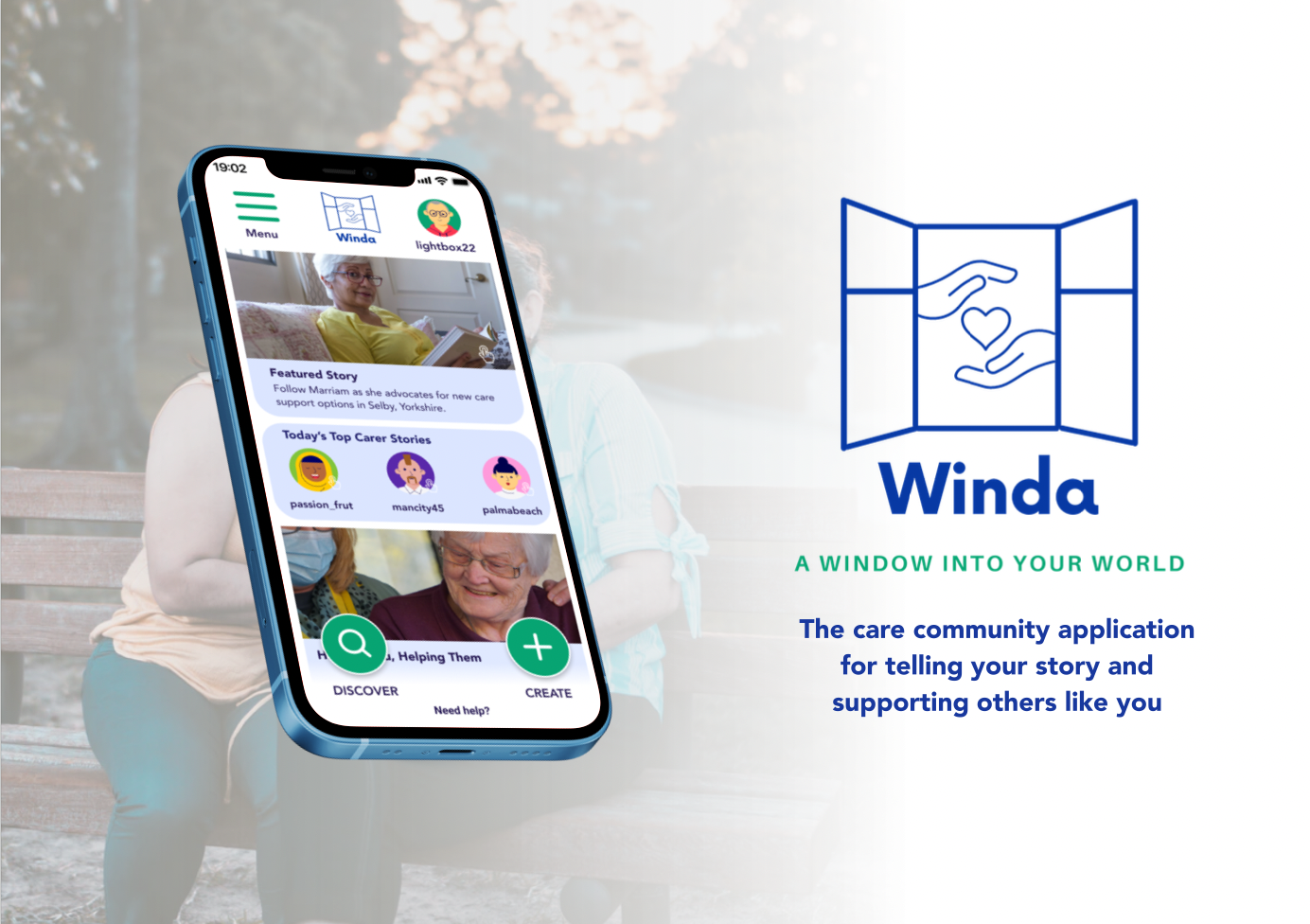
Winda is a storytelling application that helps informal carers to feel supported
Winda is a mobile application that encourages sharing and storytelling within the caring community with others like themselves, helping carers to share the highs and lows of their experience, so that they can feel authentically heard, understood and supported.
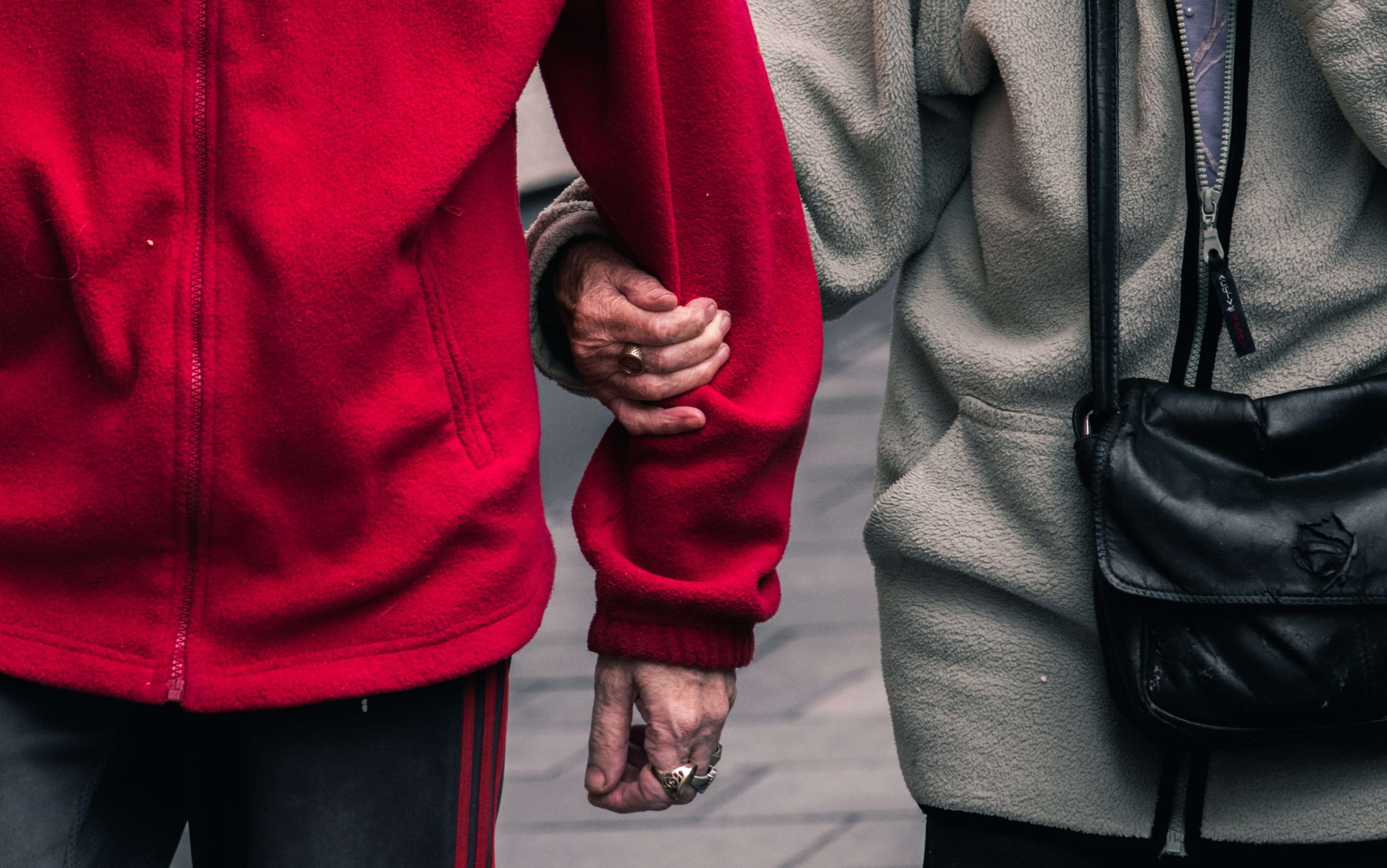
The Challenge
As a result of a growing population and life expectancy in the UK, the share of people aged 65+ is expected to increase from 18.7% to 23.7% between 2019-2050. During this same period, the old-age dependency ratio will rise from 28.6% to 47.5%. As the population progressively grows and lives longer, the pressure to meet those numbers with a strong, adequate care force only grows alongside it.
Some care pressures involve balancing caring duties with full-time work, time and knowledge intensity of the care provisions needed, and insufficient existing social care policy. While top challenges faced by caregivers include managing stress and responsibility, and negative impacts on physical and mental health.
As of 2020, there are an estimated 13.6 million unpaid carers in the UK, with 3/5 people becoming a carer in their lifetime. As changing social structures call for solutions to meet the caregiving needs of the future, this project begs the question, how can we care better for our unpaid carers?
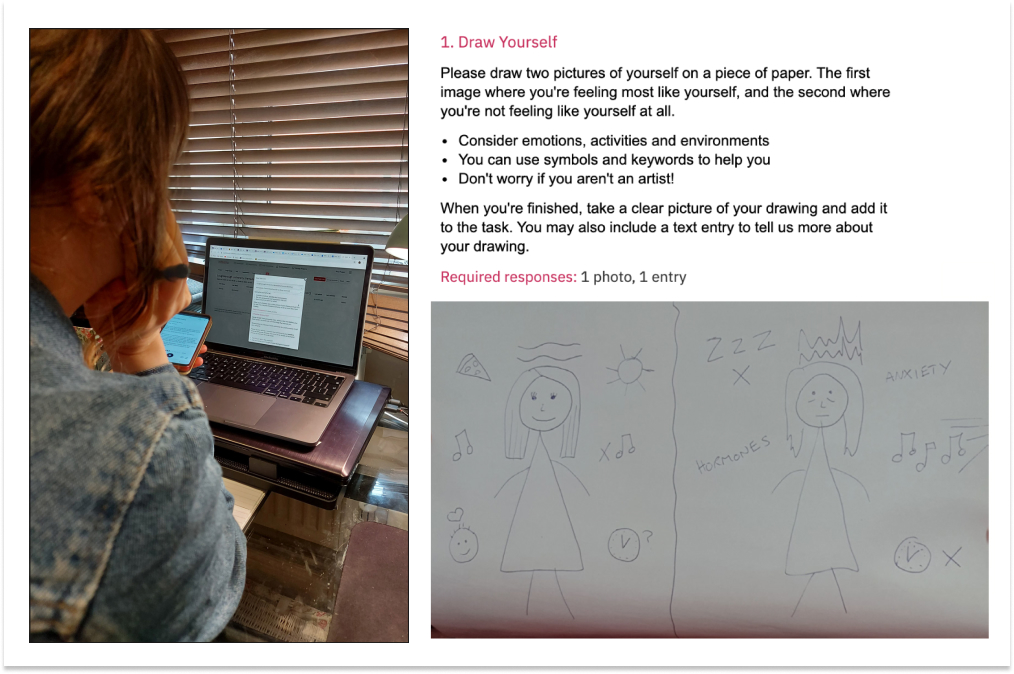
User Research
Rigorous secondary and primary research was conducted to gain deep qualitative insights into informal carers' motivations, attitudes and behaviours surrounding their caring reality. This included pilot testing and iterations of each method mentioned below:
- 51 survey respondents gained through collaboration with 3 caring charities and organisations within the UK.
- 6 semi-structured interviews with informal carers, exploring areas of interest from the survey of mindset, support, knowledge & identity.
- 3 remote diary studies using Indeemo, gaining data on emotions, thoughts and caring events in situ.
- 3 follow-up interviews, providing further expansion and contextual detail to their diary study.
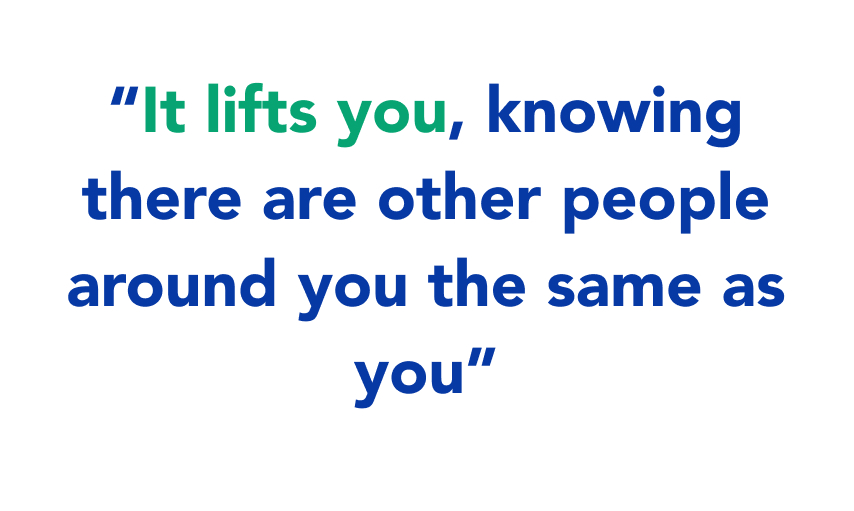
Key Insights and Opportunities
Data was collated and analysed using affinity mapping and Nvivo 12, while findings and insights were extracted and interpreted with help from empathy maps, a user persona and experience mapping. From this, key insights included:
1. Social connection with others who have shared experiences is a better way to feel heard than through many professional services
2. Outside misunderstanding of the carer's situation is one of the largest barriers to socialising and asking for help
3. The 'power of positivity' is driven by carer confidence and visible results
4. A sense of self is hard to feel when you can never truly switch off
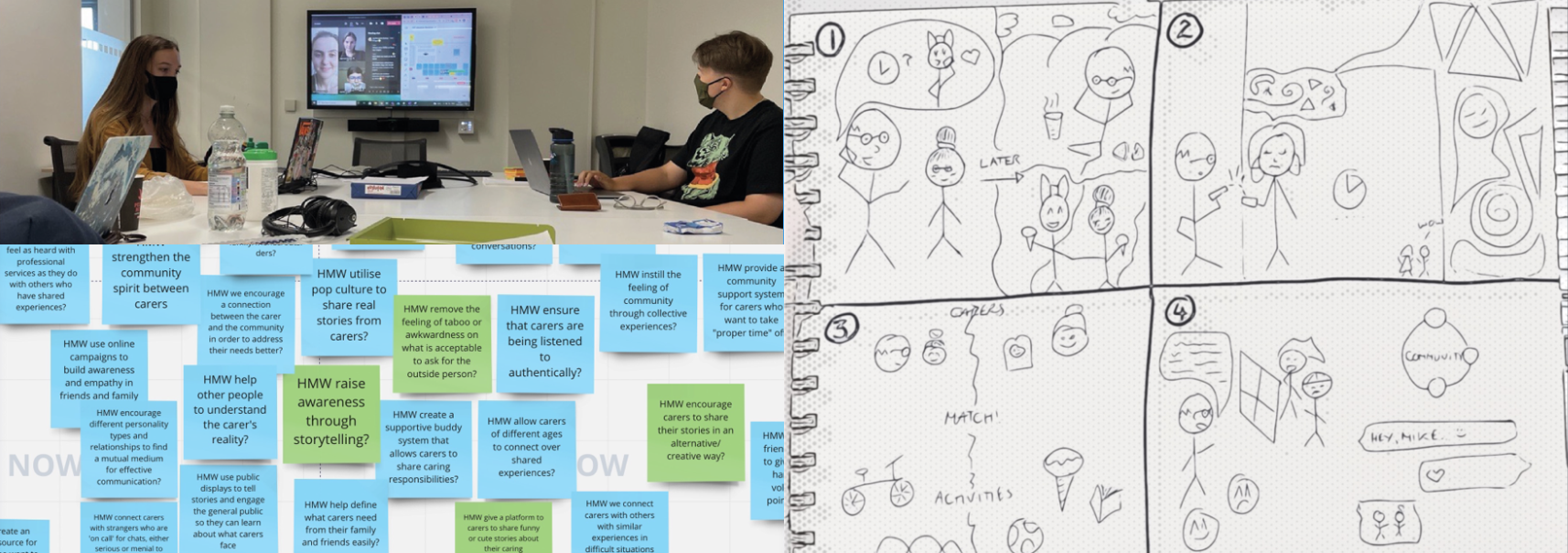
Design Iteration
Concept development followed a team HMWs and crazy 8s session that focused on generating ideas from multiple perspectives, while 'How, Now, Wow' and MoSCoW matrices were used to keep idea and feature generation well aligned with the UX principles of 1. Collective, 2. Bridge-building, and 3. Expressive.
This was followed by bodystorming, early feedback and co-design sessions with the target user group, progressing to carer content generation sessions where users experimented with different mediums of digital expression. This involved the development of an app guide personality, icebreaker tasks and different forms of story creation.
User testing took place with two high-fidelity designs using 'think aloud' and follow-up interviews to pinpoint any usability and accessibility issues, which were then iterated as needed.
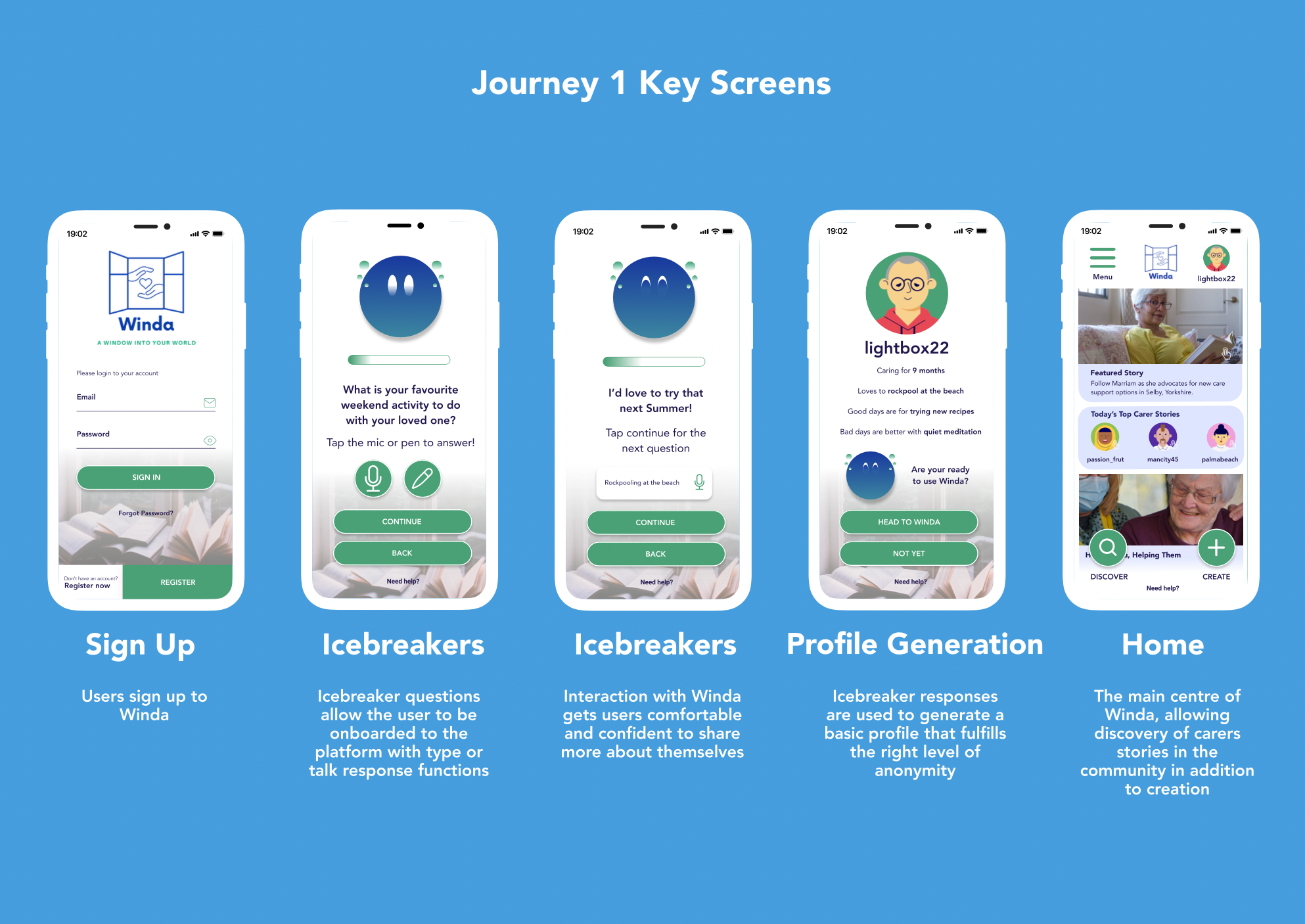
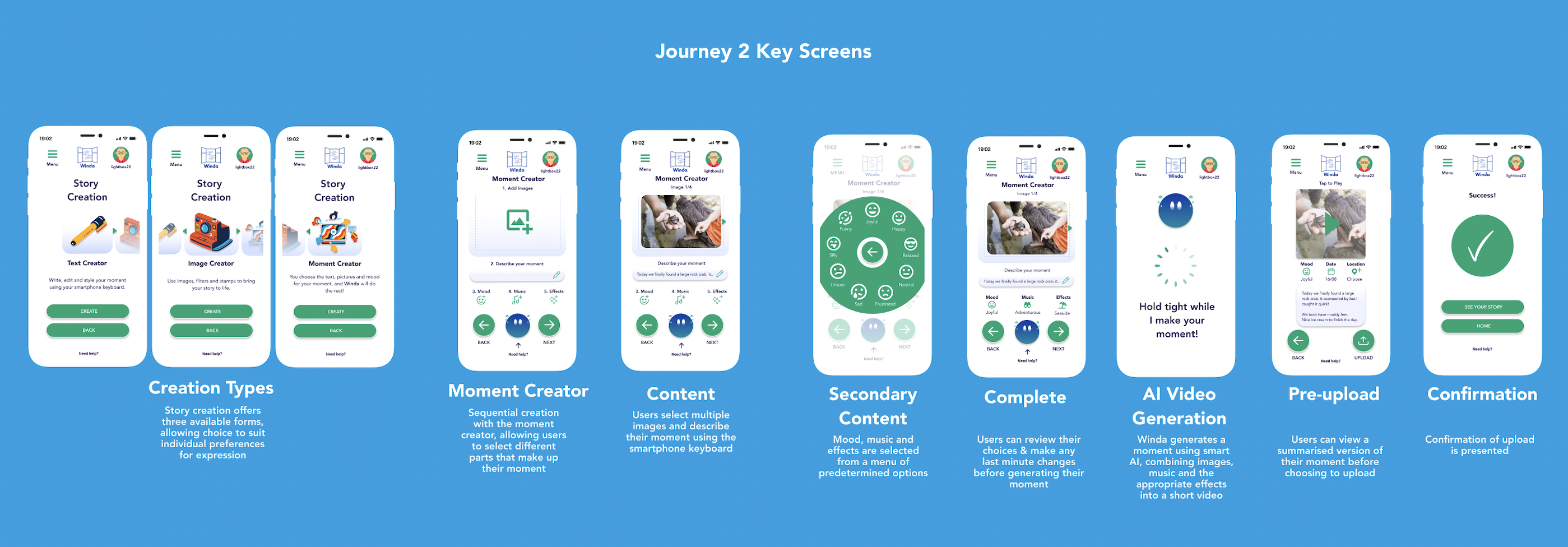
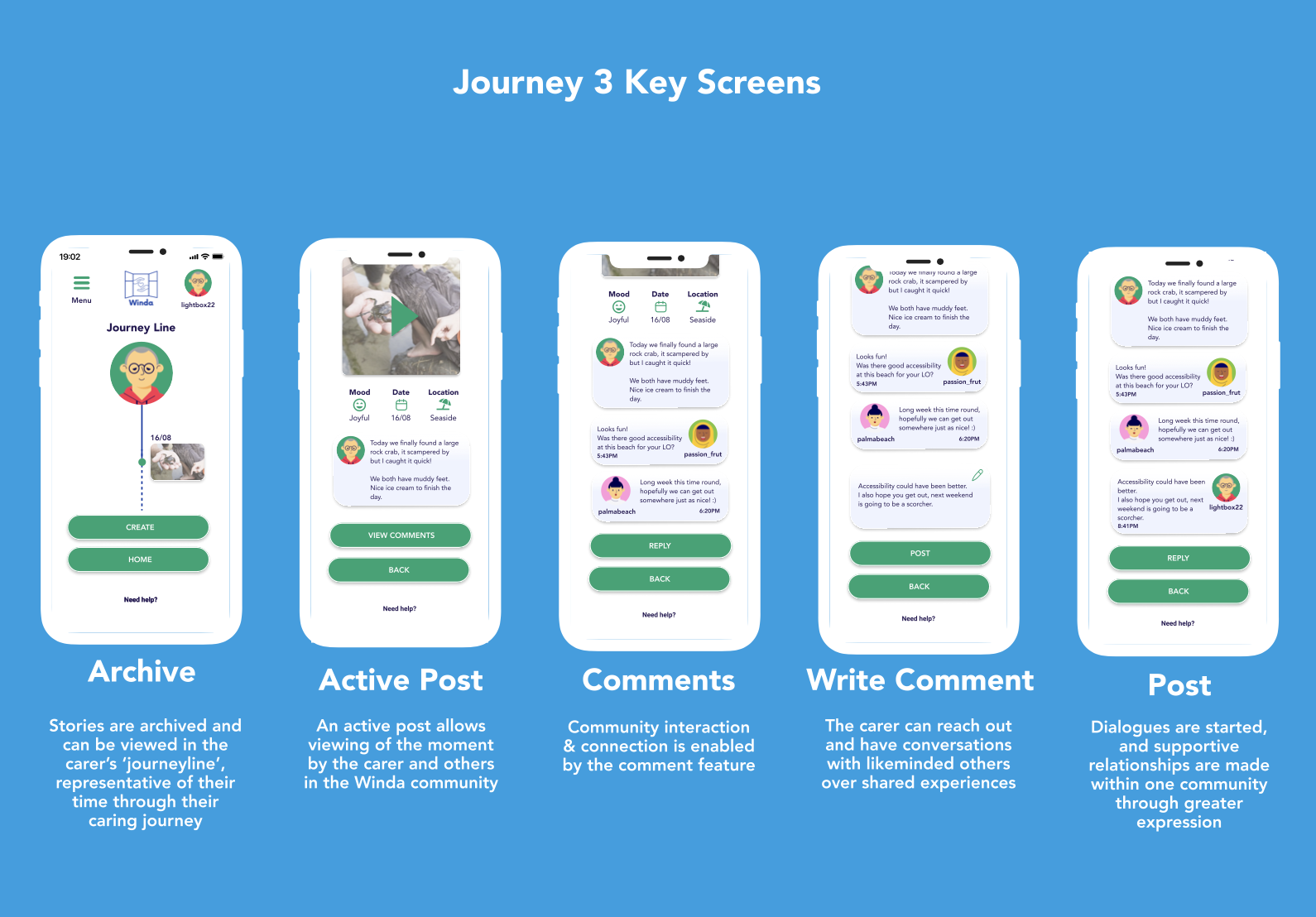
Bernadette Batehup
Curious individual from a multi-disciplinary background with a drive for creating inclusive, playful and engaging experiences.
Originally from East Sussex and with a natural curiosity for all things human, I studied Anthropology BSc at the University of Kent and went on to work in Chile as a teacher and content creator. This multi-disciplinary background has presented challenges enabling me to develop as an adaptable team player, proficient communicator and creative problem-solver.
Experience with undergraduate ethnographic research, in addition to creatively balancing student and business needs within my previous role, guided me towards User Experience and the meaningful solutions it can bring to peoples lives.
The experience of Loughborough University's User Experience MA has not only challenged me on my route into a new professional area in both technical and soft skills but has highlighted the importance and value that a diverse range of backgrounds brings to this constantly evolving field. It has been a privilege to support and celebrate the successes of other non-design students on the course entering the world of UX and is a position that I will continue to advocate the value of as a new designer taking her next steps to promote change.
Major project
A digital solution to improve the informal carer experience
Awards
My excellent team won first place for Best Concept in the UXathon 2020 that brings together Loughborough University and Hong Kong University students. In a group of five UX students, we emulated a professional UX agency team and worked remotely with the client (MBA students from the Business Lab programme at HK University).
After addressing the client's brief over three days, on Saturday we worked intensively at developing the brief and unpacking where digital design could enhance the user experience of the MBA start-up business concept involving skincare subscription packages for men in China. Our team successfully won the award for Best Concept.